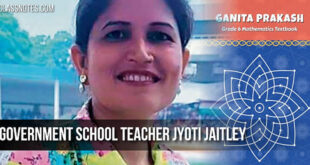New syllabus for Classes 3 and 6: The National Council of Educational Research and Training (NCERT) is gearing up to unveil a revamped curriculum for students in Classes 3 and 6, slated to be implemented from the academic session 2024-25.
Recognising the significance of Class 3 as the beginning of preparatory stages and Class 6 as the onset of middle school, NCERT has devised a “bridge programme” for Class 6 and provided concise guidelines for Class 3, catering to schools affiliated with CBSE, KVS, and NVS.
Director Dinesh Saklani has urged the Central Board of Secondary Education (CBSE) to disseminate information regarding the suggested time allocations and to encourage schools to adapt their schedules according to local needs and contexts.
Revised NCERT Textbooks For Classes 3 And 6
Last month, the education ministry informed the media that while the NCERT textbook revision process was ongoing, revised textbooks for only Classes 3 and 6 were likely to be released for the academic year 2024-25.
The official had informed that the Class 3 textbooks were undergoing the proofreading, editing and vetting process at the time.
Textbooks for Classes 1 and 2 have already been rolled out in alignment with the National Curriculum Framework (NCF) and National Education Policy 2020.
New NCERT Curriculum And Teaching Methodology
The revised syllabus, aligned with the National Curriculum Framework for School Education (NCFSE), emphasises a holistic approach to education. It includes arts, physical education, and skill development alongside traditional subjects like language, mathematics, and science.
NCERT has called upon CBSE to strategise the revision of school timetables to accommodate the holistic teaching approach. This entails integrating various subjects into a coherent schedule while considering local contexts and needs.
Activity books and textbooks based on the updated syllabi will introduce students to diverse areas of study, fostering a comprehensive understanding of subjects and promoting awareness of contemporary educational perspectives.
NCF-SE advocates for a balanced school year with 34 working weeks and around 29 instructional hours per week. It suggests a five-and-a-half-day school week with Saturdays as half working days and emphasises the importance of 10 bagless days mandated by NEP 2020.
The NCERT’s approach aims not only to facilitate students’ transition to the new curriculum but also to generate awareness among parents and the broader community about the evolving educational landscape.
 Class Notes NCERT Solutions for CBSE Students
Class Notes NCERT Solutions for CBSE Students







